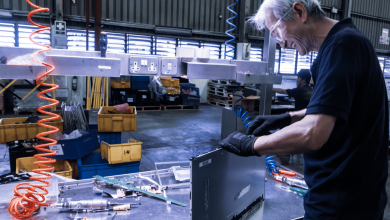
Western Europe’s PC market leapt skywards by 48% year-on-year, according to Q1 market stats from Canalys. COVID-19 driven market momentum from 2020 continued, as hardware vendors shipped a combined 16.1 million units in the first three months of the year.
Despite bottlenecks causing delays to some orders, the hardware supply chain proved more robust than last year, when the pandemic forced sudden factory closures.
“While demand remains sky high, the question is can supply cope? Right now, the vendors that can fulfil orders the quickest will win,” said Canalys research analyst, Trang Pham.
“In Q1, several PC distributors and resellers reported strong supply of HP devices, especially for AMD models. And in cases where shipment delays were inevitable, HP managed its channel well, being transparent about shipment timings and giving assurances to customers, which discouraged them from seeking alternatives,” explained Pham.
According to Canalys, Lenovo also had a strong quarter, particularly with Chromebook sales as Google invested heavily to promote its platform with enterprise clients. “Its manufacturing facility in Hungary will also speed up order fulfilment in Europe,” she added.
Overall, HP regained top spot in the PC market, which included sales of desktops, notebooks and workstations. The Palo Alto hardware giant shipped 4.1 million units, amounting to 26% share of the market. Lenovo followed close behind shipping 4 million units – the equivalent of 25% market share.
Dell, Apple and Acer rounded out the list of five vendors.
Apple registered the highest growth of the top five vendors, clocking 127% year-on-year growth. At the core of its success was the introduction of Apple’s M1 chip-based machines.
“Apple’s success makes sense, as Western Europe has a base of existing Mac users, high disposable income, and a strong community of tech enthusiasts and early adopters,” said Pham.
“Apple’s recent move to design its own processors shows its ambition. It also reflects Intel’s lagging SoC process with 5nm and 3nm chips. By working with TSMC directly, Apple has been able to bring 5nm to Mac much sooner. But the move is about more than specifications. It shows absolute commitment to Apple’s ethos, that hardware, software and services work best when created together,” she explained.
Some enterprise IT managers may look at M1-based Macs as a “complex addition to their estate”, said Pham. It was up to Apple to “ensure clear communication about the ease of device management and optimisation of bespoke apps”, she added.


